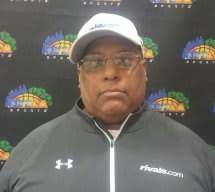The NCAA took a step forward in the battle to compensate student-athletes for their name, image and likeness (NIL) earlier today.
The Board of Governors announced that in its meetings this week it has supported rule changes that will "allow student-athletes to receive compensation for third-party endorsements both related to and separate from athletics. It also supports compensation for other student-athlete opportunities, such as social media, businesses they have started and personal appearances within the guiding principles originally outlined by the board in October."
The changes are anticipated to take effect at the start of the 2021-22 academic year.
The next step for the board is to work with each division to create rules specific to each, and those rules changes are expected to be drafted by October 2020 and voted on by January 2021. Inside these rules changes are expected to be “guardrails” for each division to work around. Included in those guardrails are the following:
-- No name, image and likeness (NIL) activities that would be considered pay for play
-- No school or conference involvement (leaving school and conference logos out of NIL activities, etc.)
-- No use of NIL for recruiting by schools or boosters
-- Regulation of agents and advisors
The Federal and State Legislation Working Group, formed in May 2019 and headed by Ohio State athletic director Gene Smith and Big East commissioner Val Ackerman, emphasized in a press conference Wednesday that the guardrails were created to avoid damaging exploitation of student-athletes’ NIL.
Further considerations for regulation, which were outlined in the working group’s final report, included the following:
-- “Whether certain categories of promotional activities (e.g., alcohol, tobacco and sports gambling) should be precluded because they are inconsistent with theNCAA membership's values
--“Whether certain categories of third-party businesses (e.g., athletics shoe and apparel companies) should be precluded from, or have limited participation in, the newly permitted activities, due to their history of encouraging or facilitating recruiting and other rules infractions
-- “What adjustments, if any, should be made to NCAA rules regarding promotional and other commercial activity by athletes prior to enrollment at anNCAA institution, including consideration of the disclosure and enforcement mechanisms that might be required in connection with this issue.
-- “How best to implement safeguards to ensure that newly permitted activities donot impose undue burdens on student-athlete time“How best to implement safeguards to ensure that newly permitted activities are not utilized by boosters in a manner that circumvents the divisions' amateurism rules.
-- “Creating a framework to permit student-athletes to engage and consult with professional services providers in connection with their NIL and business activities (e.g., tax, legal, subject matter experts) consistent with existing federal and state laws
-- “Creating resources on campus to educate student-athletes about the newly permitted activities and in a manner consistent with gender equity”
Another point addressed in the following press conference was whether group licensing, for video games, replica jerseys, etc., would be a possibility under the guidelines, and Ackerman, on behalf of the working group, said the products would be “unworkable in college sports” because student-athletes are not represented by a union/bargaining unit.
Smith noted that any financial compensation received by student-athletes could affect Pell Grants and scholarships, which warrants the necessity of educating student-athletes who wish to pursue NIL activities.
In the NCAA’s release, it noted that the Association would also “engage” Congress to take steps in the following efforts:
-- Ensuring federal preemption over state name, image and likeness laws
-- Establishing a “safe harbor” for the Association to provide protection against lawsuits filed for name, image and likeness rules
-- Safeguarding the non-employment status of student-athletes
-- Maintaining the distinction between college athletes and professional athletes
-- Upholding the NCAA’s values, including diversity, inclusion and gender equity
NCAA president Mark Emmert said during the conference call Wednesday that it “cannot be overemphasized” how much work still remains unfinished before the guidelines can be put in place in 2021.
To read the NCAA press release in its entirety please click HERE
